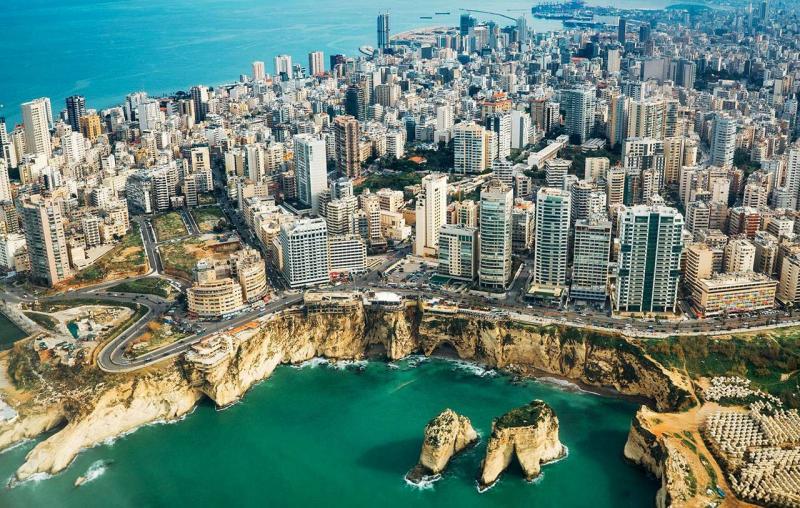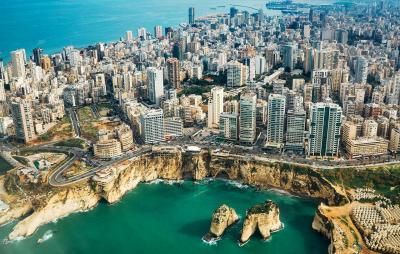The situation in Lebanon unfolds against the backdrop of interrelated changes in the regional conflict, with an expansion of targeted entities, from long-range ballistic missiles launched from the furthest point in Western Asia (Iran) to the Mediterranean coasts in Syria, passing through the Red Sea and the lands of Iraq and Syria. In this context, questions persist about the extent to which the downward trajectory might lead to a "major war" at points of tension in the Middle East or mark the beginning of a military withdrawal towards a safe exit from combat zones.
Informed political circles affirmed to "Al-Liwaa" that local political activity is muted, with the focus on monitoring ongoing developments, especially regarding the southern front. They pointed out that there are no serious local preparations concerning the presidential file; discussions about the resumption of the Quintet's communications to activate this file are prevalent. This may become evident through a potential visit by the French presidential envoy Jean-Yves Le Drian to Beirut, though it was noted that any escalatory developments might suspend this idea, potentially prolonging the presidential vacancy and subjecting various files to delays or resolutions within the caretaker government, which faces criticism for encroaching on presidential powers.
Political sources revealed that top Lebanese officials conducted communications with Doha, on the sidelines of caretaker Prime Minister Najib Mikati's participation in Davos during his meeting with the Qatari Prime Minister. They aim to send Qatari envoy Jassim bin Fahd Al Thani to Lebanon as soon as possible to resume his mission with all political parties to reinvigorate the stalled presidential election file, continuing his previous efforts based on Doha's conciliatory role since the start of the presidential election crisis, even before the outbreak of the Gaza war three months ago. This effort has the backing of the Quintet and support from most political factions to facilitate the election of a new president in Lebanon.
However, Lebanese authorities maintain their position prioritizing a ceasefire in Gaza as the cornerstone for establishing lasting stability, alongside seeking solutions related to Resolution 1701 or the Palestinian issue. They emphasized, after a warning, that they are "committed to keeping the specter of war away from Lebanon," asserting that war would be a snowball effect affecting everyone, and that Lebanon would not be the sole victim, revealing preparations aimed at establishing long-term stability in the south.
From Davos, Prime Minister Najib Mikati stated, "We are seeking diplomatic solutions and are committed to international resolutions regarding Lebanon." He added that "the decision for peace lies with the Lebanese state, and war is a loss for all." Mikati considered that Hezbollah responds to Israeli provocations, describing the party as acting reasonably and prioritizing Lebanon's interests above any other interests. He did not see any connection between the developments in the south and the presidential elections.
**The Quintet** will hold a meeting at the end of this month or the first week of February to review the specifications sent through messages carried by French envoy Jean-Yves Le Drian to parliamentary blocs, from which he has received responses. Following this, Le Drian will return to Lebanon with a summary of these specifications and will announce them either through a statement or a press conference.
Thereafter, consecutive sessions of the parliament may be held to elect a president, depending on the maturation of the negotiating atmosphere in the region, which needs a president to implement Resolution 1701 or initiate the land boundary demarcation process from west to east.
Political sources in contact with the Marada Movement and the Progressive Socialist Party indicated that the discussions regarding the presidential election file during the dinner hosted by Walid Jumblatt in honor of Suleiman Franjieh highlighted an exchange of views between the leaders on how to expedite the presidential elections, considering that having a president is essential for restoring the functioning of institutions and revitalizing the country.
It was revealed that no party committed to any position or nomination of a candidate, nor did they change their previous positions and political commitments, but they underlined the importance of electing a new president and taking necessary actions and contacts to accelerate the elections, ensuring that the elected president would not provoke any party and that communication between them would continue in the upcoming phase.




